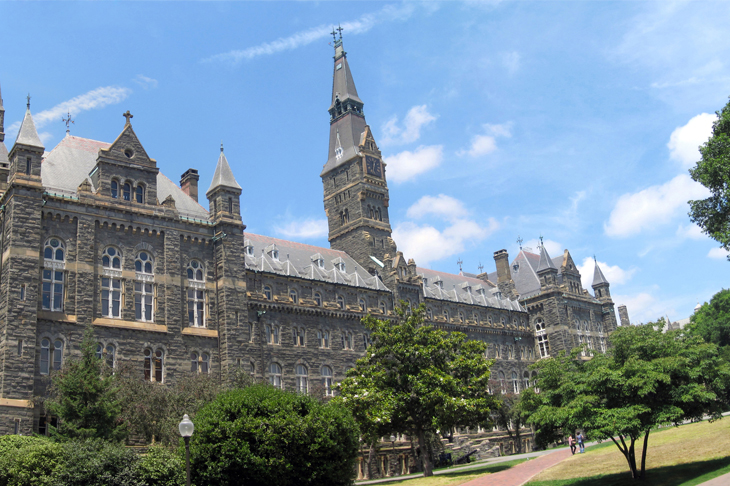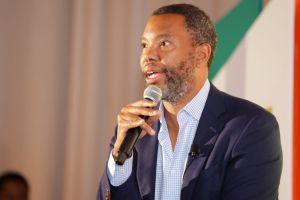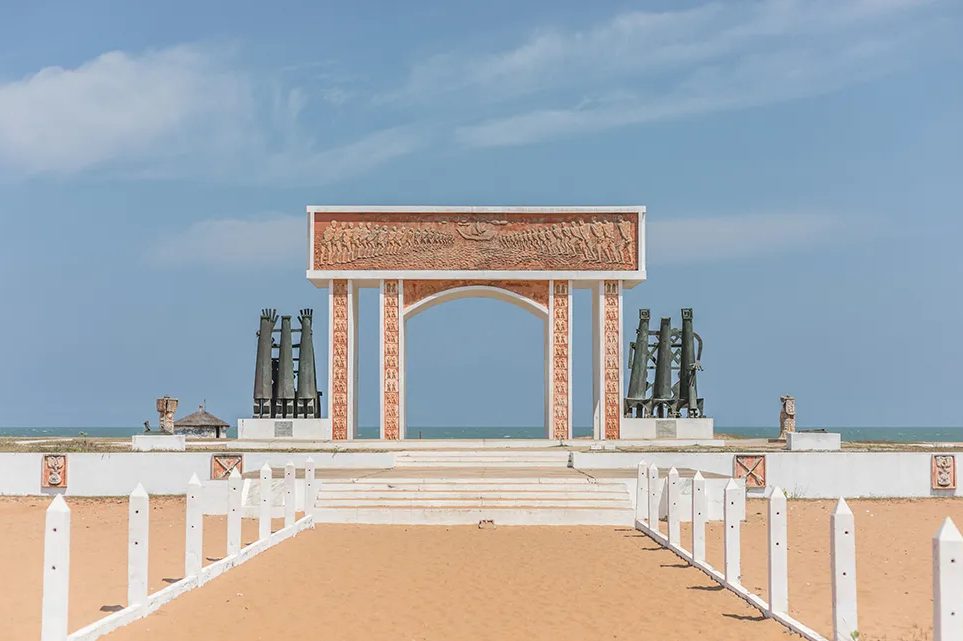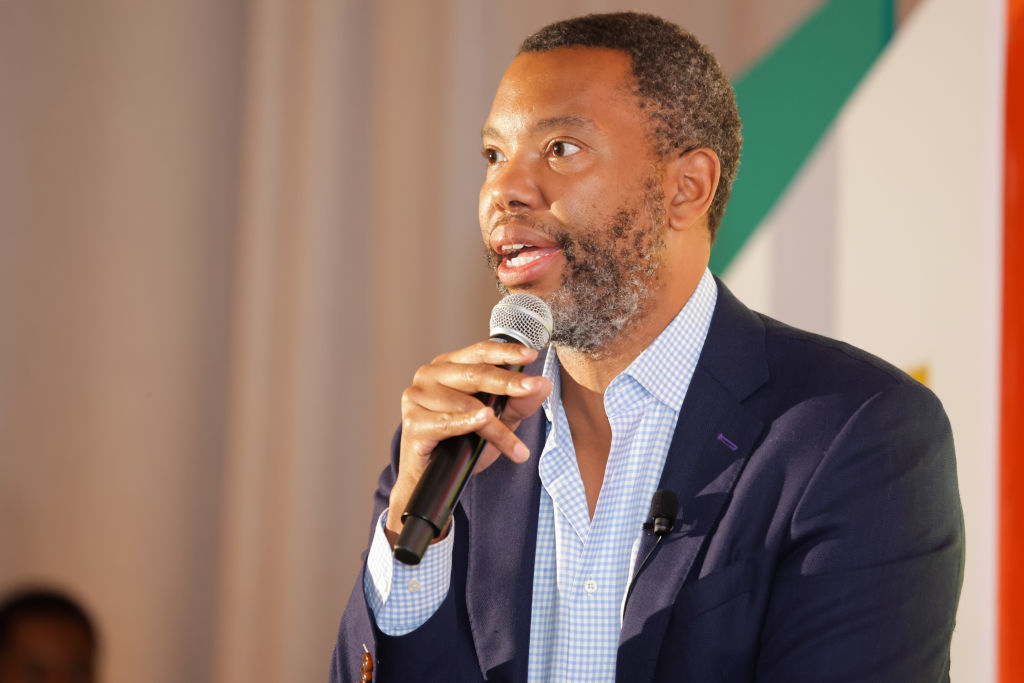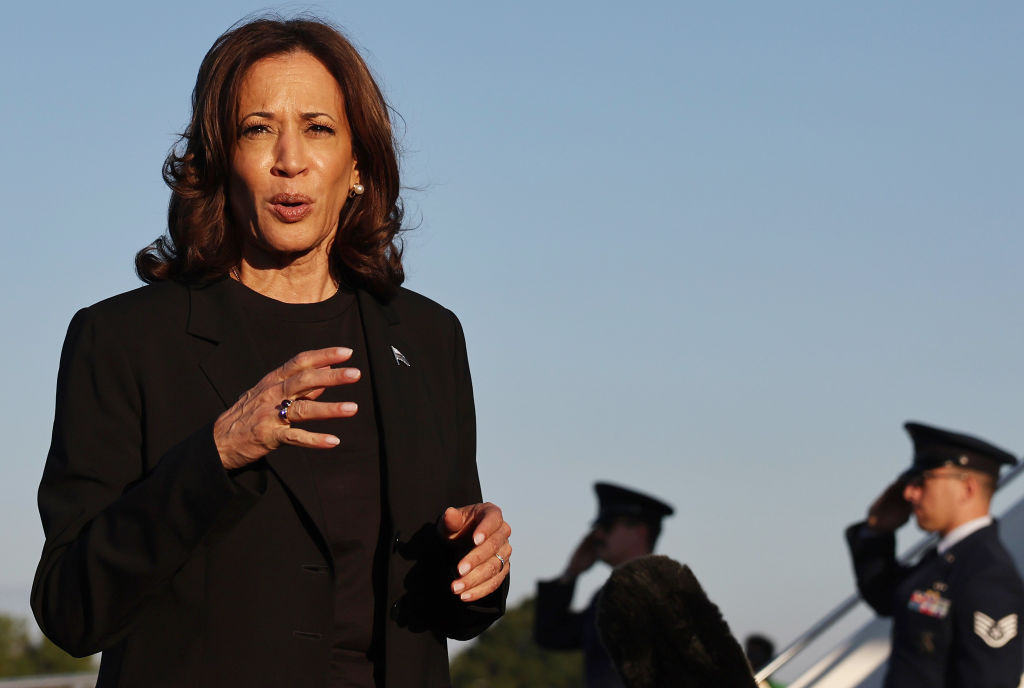Undergraduates at Georgetown University have voted to pay reparations to descendants of slaves the school once owned. Meanwhile, Democratic candidates for the 2020 US presidential nomination unanimously support creating a commission to study slavery’s impact on African Americans, with a reparations program as a possible outcome. These are the latest victories of an international movement for reparations which, despite its flawed and misguided justifications, continues to grow.
Reparations means compensation from Western European and American governments for the systems of African chattel slavery once practiced throughout the Americas. Campaigners also cite post-slavery racial injustices against ‘Afro-descendants’, and the colonization and genocide of Amerindian peoples. But, as the success of Ta-Nehisi Coates’s The Case for Reparations suggests, slavery undergirds the movement’s appeal.
The historical remoteness of slavery has not slowed the institutional entrenchment of the movement for reparations. During the 2001 United Nations World Conference Against Racism in Durban, South Africa, representatives of African, Caribbean and Latin American countries demanded that the US and Western European governments apologize for the transatlantic slave trade and cancel the national debts of the relevant countries as compensation. Though Brazil and the predecessors of modern West African polities were also active in the slave trade, with Brazil the biggest Transatlantic market for slaves, they were not subject to these demands.
In 2016, a report by the UN-affiliated Working Group of Experts on People of African Descent advised the US government to explore ‘reparatory justice’ toward African-Americans. The report cites the the Ten-Point Action Plan on Reparations, issued in 2014 by the Caribbean Reparations Commission (CRC), a subsidiary of the intergovernmental organization CARICOM.
The CRC Plan calls for European governments to issue full formal apologies, cancel the debts of modern Caribbean states, and subsidize technology transfers, psychological rehabilitation, the establishment of cultural knowledge institutions, and — finding common cause with race separatists — repatriation to Africa. The CRC threatens to file suit with the International Court of Justice unless the target governments concede.
Reparations activists tend not to characterize reparations as backpay for forced labor. Rather, they contend that Afro-descendants are living victims, because their current communal problems are legacies of slavery. The CRC defines these legacies as economic disadvantages, public health and educational deficits, social and cultural alienation from Africa, and persistent psychological trauma.
It is absurd to call Afro-descendants living victims of slavery. The opposite is the plain truth: Afro-descendants are the principal beneficiaries of their ancestors’ enslavement. Afro-descendants do not simply live with the legacies of slavery; they are party to those legacies. Without slavery, Afro-descendants would not exist as we know them today.
No one has gained more from my ancestors’ enslavement than I. The displacement and bondage my ancestors endured led directly to my birth. Afro-descendants have thus accrued the most substantial benefits from slavery. They should regard the negative consequences of slavery, and any benefits accruing to Europeans and their descendants as comparatively insignificant.
The physical, social, cultural, and economic legacies of slavery are not damages, but preconditions to the lives of Afro-descendants. Like many Afro-descendants, I am predisposed to Type Two diabetes and hypertension, ailments prevalent in my family. Barbadian historian Sir Hilary Beckles describes that genetic predisposition as ‘the direct result of the nutritional experience, physical and emotional brutality, and overall stress profiles associated with slavery, genocide, and apartheid’. Even if epidemiologists confirmed that bizarre claim, I still could not count myself as a victim. These health risks are pre-conditional. As there is no alternate version of myself that could have existed absent these genetic inheritances, they cannot constitute injury. The same logic applies to the non-physiological aspects of slavery’s legacy.
Nor can Afro-descendant communities claim collective damages for their ancestors’ enslavement. The institution enslaved individuals from disparate African ethnic groups. The descendants of the enslaved eventually formed today’s Afro-Caribbean, African-American, and Afro-Latino peoples. These distinct Afro-descendant communities would not have emerged without slavery.
The case for slavery reparations is not analogous to that of European Jews who survived the Holocaust, or the collective case acknowledged by West Germany towards the State of Israel. Individual recipients of Holocaust reparations were directly impacted by the event. The Holocaust also damaged the integrity Jewish people as a whole.
So for Afro-descendants the concept of reparatory justice is inapplicable: they have no justifiable claims as living victims of slavery.
Many Afro-descendants find these facts wholly unpalatable. They certainly do not feel like beneficiaries of slavery; rather, they feel burdened by a sense of having been wronged. Slavery in the Americas was arguably the cruelest iteration of a once-universal institution, and the severity of ancestral subjugation enhances its inherent dishonor. But when reparations advocates emphasize the denigration and humiliation of slavery, they imply it is an insurmountable shame,defining all Afro-descendant communities, that nonetheless warrants retribution. The reparations cause serves as a conduit for achieving retribution at the cost of embracing shamelessness, rendering the movement an own-goal. The answer to shame is not shamelessness, but the forthright pursuit of honor.
‘Honor doesn’t encourage seeing yourself as a victim and leaving it at that,’ philosopher Tamler Sommers writes in Why Honor Matters. ‘Honor regards being victimized as shameful and motivates you to restore your wounded pride.’
Shamelessness entails the refusal to take responsibility for our own circumstances individually and collectively, despite the past. In campaigning for reparations, Afro-descendants attempt to shunt responsibility onto the object of their resentment: people of European descent. Surrendering that responsibility leads to, as Sommers put it, to ‘a culture of excuses and ever-increasing shamelessness’, which further degrades the moral well-being of Afro-descendants.
African-American intellectual Shelby Steele explains that ideas of reparatory justice are self-defeating because they replicate the powerlessness they intend to cure: ‘you have to continue to see yourself as a victim waiting around in life to be resurrected by the beneficence of the wider society, by White Guilt. Once again you put your fate in the hands of other people rather than yourself.’
The only path to honor for Afro-descendants is to flourish on their own merits. This also the correct way to honor their enslaved ancestors. Slaveholders and their supporters claimed that Africans were unworthy of freedom, and unable to thrive like Western Europeans. Only the descendants of slaves can disprove the false logic of subjugation. If the reparations movement succeeds, it will permanently rob enslaved Afro-descendants of that opportunity — and hand a final victory to their tormentors.
Xander J. Causwell is a Jamaican researcher in the defense industry, living in Washington DC.



